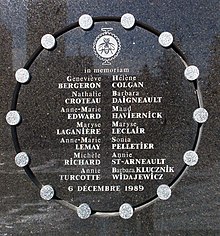
During a visit to Sarnia, on Monday, conversation around the dinner party table gravitated to the state of women’s rights past and present. One of the women I met at the partly recalled that back in the 1950s, an Ontario board of education had forced her mother, a teacher – the moment she got married – to resign from her position at the school.
My mother, an American immigrant to Canada at the time, expressed her disgust at such discriminatory rules at the time.
“What makes a wife or mother less effective as a teacher?” I remember my mother saying. In fact, the practice of restricting the employment of married women was fairly common in Western countries beginning in the late 19th century and continuing right into the 1970s.
Known as the “marriage bar,” school boards actually pressured married women to cut back on their hours of employment, to retire early, or to resign completely so that schools could make their jobs available for others (presumably men, or younger, unmarried women). The marriage bar considered women as surplus employees. It was sexist at least, misogynistic at its worst.
Our conversation proved all the more ironic when somebody pointed out that the next day, Dec. 6, was the 33rd anniversary of the massacre of the 14 women engineering students at École Polytechnique in Montreal.

On that day back in 1989, an antifeminist shooter entered a mechanical engineering class at the school, ordered the women to one side of the room, told the men to leave, and shot nine women in the class (killing six); he then moved through the corridors and shot eight more female students before taking his own life. The massacre is commemorated as the National Day of Remembrance and Action on Violence Against Women.
Women’s rights and women’s equality have also cropped up – quite rightly – in a number of other contexts in recent weeks. When video of Mahsa Amini being abused in the custody of Iran’s morality police because she hadn’t abided by the Islamic republic’s strict rules for women to cover their hair, rioting broke out across the country; protestors even called for the overthrow of Iran’s Supreme Leader Ayatollah Ali Khamenei.
And chants of “Say her name, Mahsa Amini,” reverberated among protestors outside one of the stadiums ahead of Iran’s first soccer match during the current World Cup competition in Qatar.
Meanwhile, earlier this fall, the United Nations Department of Economic and Social Affairs published a progress report on gender equality. The study of the progress of women in achieving gender equity by 2030 suggested that COVID-19 and the backlash against women’s sexual and reproductive health and rights have diminished the chance to reach that objective.
It said that violence against women remains high, and that global health and humanitarian crises have increased the risks of violence against the most vulnerable women and girls.
“Achieving full gender equality, one of 17 sustainable development goals,” the UN DESA said, “could take close to 300 years.”
Back at the dinner gathering in Sarnia the other night, the topic of education and women’s equality continued. One woman remembered that her mother – despite the marriage bar – had managed to keep her job as a teacher until she got pregnant; then she was let go.
I noted that my wife had always wanted to become a veterinarian, but back in the 1960s when she explored entry criteria in the Ontario Veterinary College in Guelph, she learned that the school only allowed four women per year to enter veterinary training.
The conversation then shifted to our daughters, and their career aspirations in the 1990s and early 2000s. We all commented on how far things appeared to have come from the days of the marriage bar. Several of us mentioned that our daughters had chosen to teach, and that they’d taught as working wives and mothers. One woman in the group mentioned that her daughter had become an engineer.
“What an achievement,” I said. Then I admitted that my comment was in part a reflex response to the imminent École Polytechnique massacre anniversary. “I guess we still haven’t gotten past the murders of the 14 engineering students in this country. And probably won’t for a long time.”
Then I remembered Justin Trudeau’s answering a reporter’s question about why he’d chosen to have gender parity in his first federal government cabinet. “Because it’s 2015,” he quipped.
Seven years on, and we haven’t reached gender parity or equality in so many other aspects of work and life – in Canada or anywhere else for that matter. And still women wait for change.